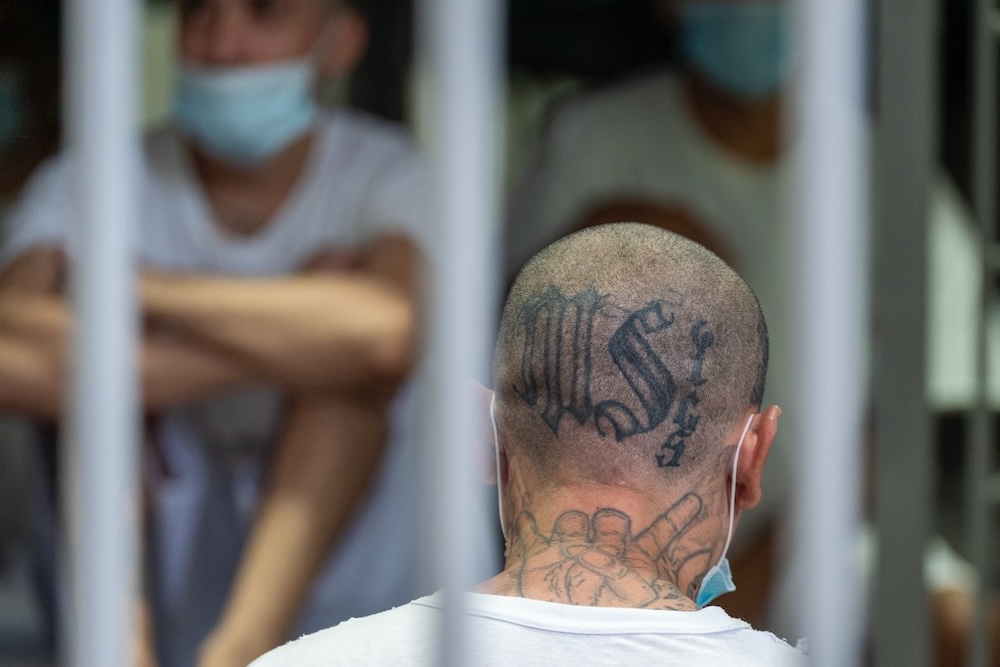The Presidential Commissioner for Human Rights and Freedom of Expression has resigned and the latest threats to "El Faro" indicate a serious escalation of a government-sponsored crackdown that is forcing journalists to flee.
This statement was originally published on rsf.org on 22 May 2025.
Reporters Without Borders (RSF) is extremely concerned about the serious deterioration of press freedom in El Salvador, which continues to plummet in the RSF World Press Freedom Index. The Presidential Commissioner for Human Rights and Freedom of Expression has resigned and the latest threats to El Faro, one of the country’s largest independent media outlets, indicate a serious escalation of a government-sponsored crackdown that is forcing journalists to flee. RSF demands the Salvadoran government immediately cease all attempts to criminalise journalism and guarantee the safety and freedom of the journalists from El Faro.
El Salvador has dropped an alarming 61 places in the past five years in the RSF World Press Freedom Index, and recent developments highlight how the government’s repression of the press is only getting worse.
On 1 May, the independent news site El Faro published an investigation revealing alleged secret negotiations between high-ranking officials in President Nayib Bukele’s government and leaders of criminal organisations. The report also detailed illegal agreements with gangs that were reportedly key to Bukele’s political rise from mayor of the capital, San Salvador, to president. Soon after the report was released, El Faro’s editors spoke out about subsequent death threats, a targeted online smear campaign by government officials and supporters, suspicious cars following journalists, and drones flying through the windows of Carlos Dada’s house. What’s more, the investigative outlet claims they’ve discovered that the Attorney General’s Office is preparing arrest warrants for at least seven journalists and editors, meaning they may face judicial persecution for publishing information of public interest.
Following the publication by El Faro, the Presidential Commissioner for Human Rights and Freedom of Expression of El Salvador stated, “The principle of legality applies in our country to all citizens, including journalists. If accusations are made against someone, it is the responsibility of the competent institutions to ensure due process and the presumption of innocence.” A statement that seems to be smoke and mirrors: since Bukele took office in 2019, El Faro has been subjected to systematic harassment and surveillance. In 2021, the Inter-American Commission on Human Rights (IACHR) granted precautionary measures to 34 members of the newsroom, citing serious threats to their safety. That same year, the outlet revealed that at least 22 of its journalists had been targeted via the spyware Pegasus. Part of El Faro’s news team has been operating from Costa Rica since 2023, yet, even in exile, El Faro’s journalists continue to face severe pressure, arbitrary tax investigations, and online smear campaigns.
“Attacking El Faro as a reprisal for its journalism threatens not only the outlet’s reporters, but the public’s right to be informed of vital news from reliable sources. The potential criminalisation of El Faro’s journalists for their investigative work follows what is now a state policy of persecuting the press. RSF urgently calls on the Salvadoran authorities to end any attempt at judicial repression against El Faro’s team, to fully guarantee their safety, and to end the systematic persecution of journalists that has caused El Salvador to plummet in the RSF World Press Freedom Index. Publishing verified, public-interest information must never be grounds for criminal prosecution.”
Artur Romeu, Director, RSF Latin America
Not an isolated case
The persecution of El Faro’s journalists is not an isolated incident, but a state policy of muzzling reporters. According to the Association of Journalists of El Salvador (APES), an RSF partner, 789 attacks against the press were recorded in 2024 — a 154 per cent increase compared to 2023. Of these, 70 per cent were perpetrated by state institutions, security forces or public officials. This continued repression has caused many media professionals to flee. Among the emblematic cases of exiled journalists:
- Jaime Quintanilla, a journalist from the investigative digital media outlet Redacción Regional, was attacked on social media in October 2024 by President Bukele and high-ranking officials after publishing an investigation into the assets of Bukele’s family. He temporarily left the country for his safety.
- Alicia Miranda, a journalist from the digital media outlet Alharaca, went into exile in Mexico in November 2023 out of fear of being criminalised. Her departure was prompted by threats stemming from legal proceedings initiated by the Attorney General’s Office and the Supreme Court against former staff members of the outlet and their families.
- In June 2022, community journalist Víctor Barahona was detained and released after 11 months without formal charges. During his detention, he reported being subjected to physical and psychological torture. His case was presented to the Special Rapporteur on human rights defenders.
Journalists who remain in the country routinely face surveillance and raids. One such reporter, Mónica Rodríguez, journalist and press coordinator for the outlet Bálsamo Radio-TV, had her home raided by the police without a judicial warrant in December 2024 – computers, mobile phones, and disks containing the journalist’s work-related information were confiscated. RSF and APES submitted a formal complaint about Mónica Rodríguez’s case to the former Commissioner for Human Rights and Freedom of Expression of El Salvador following the meeting in March.
Suppression of civic space
On 20 May 2025, El Salvador’s Legislative Assembly passed the Foreign Agents Law, requiring individuals and organisations that receive foreign funding to register with the government and pay a 30 per cent tax on such donations. The law grants broad powers to the Ministry of the Interior to suspend or dissolve entities deemed non-compliant. It is a direct tool to silence dissent and restrict the work of independent media, which often depend on international support to investigate, report, and hold power to account.
